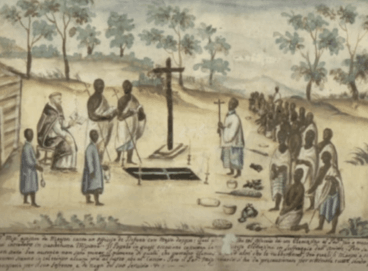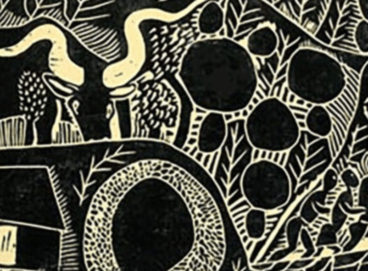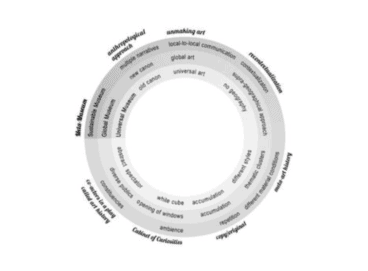“Global” is a word that is now frequently referenced in art discourses, just as the call to include an international perspective increasingly has become an articulated goal for art history and institutions. Nevertheless, what constitutes a global approach remains contested. To mark the 10th anniversary of Contemporary and Modern Art Perspectives (C-MAP), a self-described “global” program at MoMA, a symposium was organized to focus exactly on this issue: how is a global perspective actually achieved? Rather than taking a theoretical approach, a series of sessions sought to enact, and put pressure on, the practice of the global by juxtaposing different situated perspectives within a related or shared thematic framework — a methodology that elucidated both relationships and chance similitudes, but also allowed for translation to break down and for histories to be acknowledged as incommensurable. Emphasizing the plural “s” of Perspectives in the Initiative’s name (Contemporary and Modern Art Perspectives), the Multiplication of Perspectives proposed the impossibility of attaining a properly global view from one privileged position. The symposium thus underlined the importance of recognizing the plurality of viewpoints that any geographically-inclusive approach to the study and exhibition of art must necessarily entail.
The Multiplication of Perspectives, which took place in April 2019, brought together scholars, artists, and curators from around the world to engage publically with issues that have been taken up internally within the C-MAP research program over the last decade, while articulating a responsibility of the art museum to address questions of social and political importance in the present. A series of dialogues, forums, and keynote presentations addressed a diversity of topics that ranged from migration and circulation to climate crisis and justice. We have compiled these sessions on post, as individual videos, which will be regularly added here, until the full program is available in distinct chapters.
Achille Mbembe’s writings on African history and political and critical theory draw on a broad variety of disciplines, languages, and intellectual traditions. His work challenges colonialism and its consequences, modernity and western thought, and proposes a renewed understanding of power and subjectivity in post-colonial Africa. His book Critique of Black Reason (2017) sets out to build an image of Blackness in all its complexity through the reading of contradictory imperatives of racial capitalism. In his closing keynote for the symposium The Multiplication of Perspectives, Achille Mbembe reflects on the global present and observes a recurring demand for durability in a planet in need of political and aesthetic repair.





